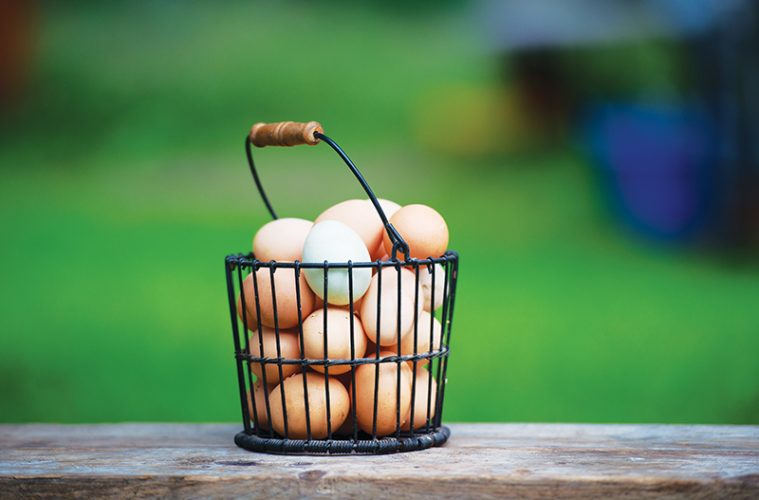Standing on just one acre in Andover, Herb Hill Micro-Dairy doesn’t look like a typical farm. Owner and operator Lucy McKain explains, “People have all different visions of farms, but most don’t think it can be done in a small space. We’re proof that it can be—but it takes a lot of careful planning and education.”
McKain, a teacher by trade, wasn’t formally trained in agriculture, though she notes, “We’ve had goats in the family for years.” Interest grew when she and her kids got involved with the local 4-H programs. She also took classes through Holistic Management International and the Northeast Organic Farming Association.
Then, a few years ago, she thought people might like the opportunity to drink raw goat’s milk.In 2009, McKain became one of the few farmers in Massachusetts licensed to sell raw milk. Now, she mentors novice farmers and teaches holistic management principles and practices.
North Shore residents responded positively to McKain’s first venture, and their interest afforded her the opportunity to expand. “I realized that just offering dairy wasn’t sustainable in the long term, and that other enterprises would fit in nicely,” she says. A course at Essex Agricultural and Technical High School gave McKain the expertise she needed to introduce egg and meat chickens to the property. Not only are the eggs at Herb Hill certified organic, but the chickens are also treated well. “We give them plenty of access to fresh grass, land, sunlight, and exercise,” says McKain. “They’re healthy, producing eggs all year round, so we can provide them to customers even in the winter.” She also raises four groups of meat chickens between spring and fall us- ing a Community Supported Agriculture (CSA) model.
The Herb Hill farm is small scale and well organized. “We have a limited [number] of animals, but everything works together,” notes McKain. “The animal manures result in organic-rich compost, which feeds and sustains the microorganisms in the soil.” The farm’s once-weekly, 20-week vegetable CSA is popular with customers who value healthy, local produce. “I grow many cool- season crops and practice multi-cropping because of my limited growing space,” says McKain. “One year, I grew black beans—it was fun for me and for my customers to try something new. Most people had never seen black beans in a pod before.” She also notes the importance of giving people a nutritional crop with good flavor. To that end, she partners with Red Fire Farm in Granby to supplement what she can’t grow in such a limited space.
Additionally, she grows produce for a wholesale distributor, the local Whole Foods market, and two local restaurants, Flatbread Co. in Burlington and Fuse Bistro in Lowell. “I love the opportunity to help local, organic produce reach more people,” she says. “My goal is to be not just a source of healthy foods, but also a source of education for the community.”
In the spirit of education, McKain invites students from Wood Hill Middle School to learn about grazing management as they herd goats to graze at Andover’s Hammond Field. “Our goats’ job is to eliminate the invasive plant species there, supply nutrition to the existing grasses, and awaken hidden seed beds, [thereby] restoring more diversity to the environment sustainably,” she explains, noting that such grazing has made a visible difference in the landscape.
Herb Hill also sponsors a Kid’s Week every June; children are invited to morning sessions, during which they learn about running a small farm. “They do everything I do,” says McKain. “I teach them how to milk the goats, gather eggs, move the chickens and goats, and even make soap from the milk.” One of the most popular activities, she notes, is mucking out the stalls.
“At the end of the day,” says McKain, “I hope to show people that small farms are a doable value resource. Organic farms are good stewards of the land, and you don’t have to grow on a large scale to get results.” theherbhillmicrodairy.mckain.me

